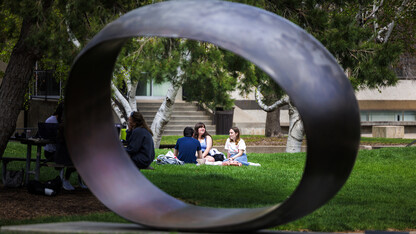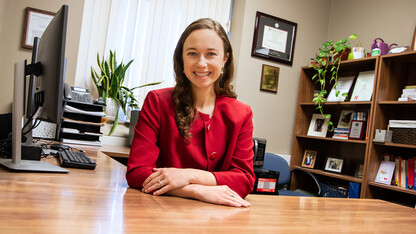· 2 min read
Nebraska microbiologist investigates antibiotics and gut health
Commonly used antibiotics can work wonders when it comes to eradicating “bad” bacteria like those that cause strep throat, pneumonia or urinary tract infections. But how do they affect the “good” bacteria in your gastrointestinal microbiome?
Jennifer Auchtung, a food microbiologist at the University of Nebraska–Lincoln, has been awarded a $387,955 grant from the Centers for Disease Control to begin searching for an answer to that question.
The year-long project will examine how 12 commonly used antibiotics might affect the gut health of children, adults and the elderly. Goals include identifying consistent trends and individual differences in how antibiotics affect the microbiomes of different people, as well as validating cost-effective models for testing antibiotic effects.
This marks the second year of innovative antibiotic research Auchtung began at Baylor College of Medicine. She recently moved to Nebraska to become part of the university’s Food for Health Center. She continues to collaborate with Anthony Haag, an assistant professor of pathology and immunology at Baylor and director of metabolomics and proteomics at Texas Children’s Hospital Microbiome Center.
Her Nebraska collaborators include research assistant professor Thomas Auchtung, master’s student Armando Lerma, from Juarez, Mexico, and undergraduate students Keegan Schuchart, from Lincoln and Yining He and Xiaoyun Huang, students from Northwest Agricultural and Forestry University in Yangling, China, who are completing their fourth years at Nebraska in the 3 +1 Program.







